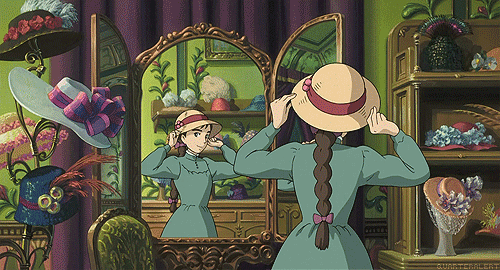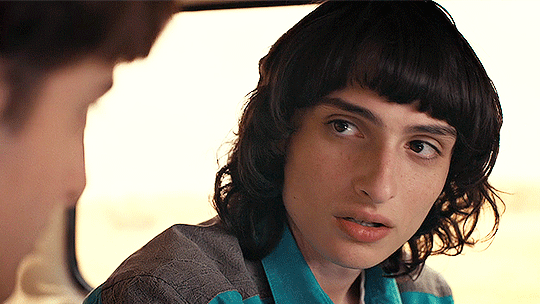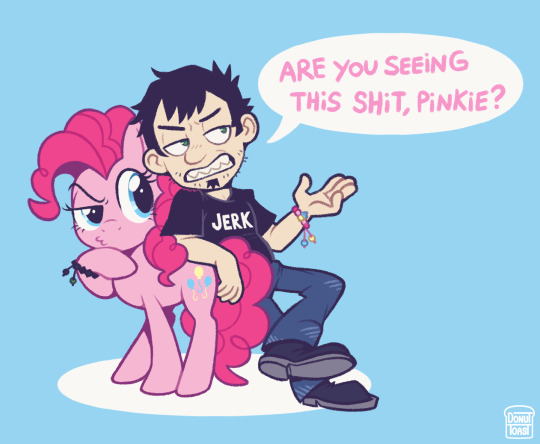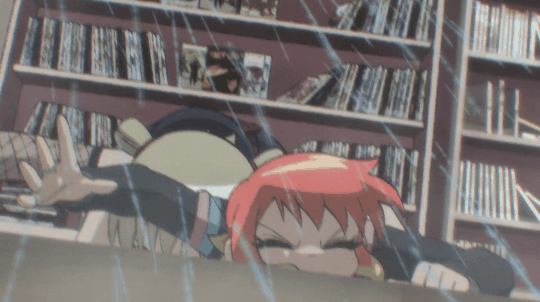#show vs tell
Text
Show vs Tell, Or: Please Stop Making Things Difficult for Yourself
I said a while ago that I'd write a brief essay about the most misused craft advice in writing once I wrote 10k words, and for once I actually held myself to that! So now, I'm here to tell you about Show vs Tell, or why people make it more complicated than it needs to be.
First, a basic primer for anyone who hasn't heard this term before: "Show vs Tell"/"Showing vs Telling" refers to "showing" the audience information instead of "telling" it to them. You may be thinking, gosh, that sounds unspecific to the point of being readily misapplied, and you would certainly be right! Lots of folks throw it around without fully grasping what it means, how to use it, or when it doesn't actually apply. And I'd really like everyone to stop making it harder on themselves when there's a very straightforward way to conceptualize it.
So for starters, Chuck Palahniuk has an old but good essay about eliminating "thought" verbs from prose that holds the hell up. But I'm going to tell you an even simpler way to conceptualize the difference between showing and telling:
Eliminate the inner thoughts entirely.
Ask yourself, if my narrator's interior monologue was inaccessible to the audience, how would I convey the same information—literally showing it?
Forget for a moment that your medium is the word, and imagine you only have dialogue and visuals. If this was taking place on the screen or in a graphic novel, how would you convey that this character has a crush on someone in their class? That they're hotheaded? That they're struggling with a decision?
Here's a perfect example of this from the opening scene of Howl's Moving Castle.

Devoid of context, we have a girl trying on a hat in a mirror, and also trying on a fake smile. Then her expression sours and she pulls the hat down over her face until we can only see her frown. She's wearing a plain dress and the hat is simple, despite the elaborate hats and ornaments on display around her.
You don't have to know anything about this character to understand what's being conveyed in this moment: This girl is deeply uncomfortable with trying to be pretty and flirty, but in the safety of privacy she wants that, even though she feels inept and self-conscious about it. She's in this world, but she's not part of it. Even brushing up against it for a moment makes her shut down and reject it with hostility.
More importantly, it's all communicated with a simple gesture and design choices. Not by Sophie thinking to herself, I wish someone would take me dancing—no I don't! I work too hard to have time for dancing!
That's showing. And it's more resonant, because we've all felt silly trying something on in a mirror! Or, say, if you want to show a character has a crush, having them get flustered and laughing too loud. Or showing that they're a hothead by having them snap at a simple disagreement, etc. etc.
This also extends to worldbuilding, dialogue, and stakes.
Worldbuilding: If your story is set in a town run by a crooked sheriff, you could have the narrator say "everyone knows Sheriff Smith is squeezing the shops for bribes." Or the sheriff can stop the narrator for "smelling like weed" while the sheriff's drunken son speeds by, about to total his third BMW.
Dialogue: If your character is angry, they can say "I'm furious." Or they can slam dishes in the sink and insist "I'm not angry" while openly crying. They can snap "I'm not discussing this again." They can demand "What is he doing here?"
Stakes: You can have an all-seeing oracle say "If you do not return the Mystic Orb to the Sunlight Altar by the solstice, the world will plunge forever into darkness." (And as we'll get into it below, sometimes you actually need that.) You can also have intermittent but increasing periods of total darkness occurring as the party travels to the Sunlight Altar. You can have the Mystic Orb start cracking the longer it takes, and the sun getting a little dimmer with every fracture. You can have people's shadows growing bigger and bigger and acting autonomously.
But showing isn't the end-all-be-all; telling absolutely has a place. Sometimes it's better to quickly and plainly state information and move on, such as a little earlier in the scene, when the other hat shop girls have spotted Howl's castle:
"Look, it's Howl's castle!"
"I've never seen it so close!"
“Do you think Howl will go into town?”
“He’s gone!”
“No, he’s just hiding in the fog from those planes.”
“Did you hear what happened to that girl, Martha, in South Haven? They say Howl has torn her heart out.”
“Now I’m too scared to go out!”
“Don’t worry. He only preys on pretty girls.”
This tells us some stuff directly: Who owns the castle we see in the first few seconds, that he's hiding from soldiers, that he has a reputation for preying on beautiful girls. We can infer also that he's a bit of a coward, he stays away from civilization, and that his reputation for cruelty has spread over multiple regions.
This happens so quickly, and it's couched in enough character between the teasing and the gossip, that it doesn't stand out as capital-t-Telling. That's exactly what expository dialogue should do. "Showing" us all that information would take a lot of screen time that can be saved in ten seconds of dialogue.
It's also not just about saving time; it's setting up an image that Howl initially fulfills when he helps Sophie escape the soldiers... only to be punctured when she actually goes to his castle and sees the real Howl. Telling is good for setting expectations that you know will be subverted later.
So yeah, tl;dr: If you're tied up in knots about "am I showing?? am I telling??" just ask yourself how you'd convey the same information in a movie or graphic novel, without access to interior monologue, and evaluate if that'd be better. Most of the time the answer is yes, but not always!
143 notes
·
View notes
Text
Will doesn't make romantic/emotional speeches like Mike does and I think we forget that because if I told my crush how loved they are all the time (even if I said it was by other people, I tell them how loved they are period) and they aren't that type of person and I'm fine with that then one day I accidentally press the right button and they launch into a spiel about how I don't know just how important I am to the people in my life, hell yeah I would fall in love with them hard and that quick! And I would know it, too.
If they described some third party loving me as the most natural, logical thing in the world that I deserve to hear and feel and never feel like less than enough about. Yeah...I'm in love with them.
Show vs tell is true for Mike too. In the version of Will's speech that is the truth, El TOLD Will she needed Mike. Will SHOWED Mike he loved him - giving him the painting, talking continuously to validate him, on the verge of tears. It's about actions.
What people think the conversation was:
Mike - El doesn't love me
Will - yes she does
What it actually was:
Mike - El doesn't love me
Will - you are so inherently lovable let me cite my sources: El telling me so and making you this painting.
the painting and El were SOURCES CITED. Not the content. They were not quoted. The content was all Will and Mike knows that much.
47 notes
·
View notes
Text
Show vs Tell
or "Tell me something, without telling me something"
You may have seen people talking about showing vs. telling and how this can strengthen your writing. Originally attributed to Russian playwright Anton Chekhov with the quote, "Don't tell me the moon is shining; show me the glint of light on broken glass", the idea can cause a lot of confusion amongst writers. After all, isn't all writing telling?
A typical response to avoid 'telling' is to start 'showing' everything. Overly long descriptions of simple acts, such as opening a door, end up clogging up the page and slow pacing, and ultimately don't actually show much at all.
I've heard it said that one should typically 'tell' actions and 'show' emotions, but again I think this skirts around the real question, which is:
What do you actually want to tell the audience?
Trying to tackle "show vs tell" without first knowing what it is you want to tell, can leave you floundering in a sea of undirected clenched fists and smooth, cool doorhandles.
This is where TikTok comes in. And that's only half a joke!
You might have seen that TikTok trend, "tell me without telling me", which I think is a brilliant summary of what show vs. tell actually means; perhaps understandably, as the phrase was originally associated with visual media.
For those who haven't seen one of these videos, they tend to follow the format of someone talking to the camera, asking a tongue-in-cheek question such as: "tell me your boyfriend won't cheat on you without telling me your boyfriend won't cheat on you". It then cuts to someone else's clip of said boyfriend, excitedly describing his model figure collection or some other such thing.
What they tell us, in a light-hearted way is "I don't think my boyfriend would cheat on me because he's an adorable nerd, too involved in his own hobbies to be out searching for other partners behind my back", but what they show us is him being an adorable nerd. We are told through the showing, and this is exactly the same in writing.
Do you want to tell your audience that two characters have been best friends for years? Maybe you would show them having in-jokes and being visibly relaxed in each other's presence.
Do you want to tell us that your MC has a crippling fear of the dark? Maybe you'd show them being hesitant to go into that dark room where the lightbulb has blown even though all their friends are fine.
Do you want to demonstrate that your setting is the home of someone very wealthy? Perhaps you would then describe that beautifully carved, oaken door, polished to a bright shine with a golden handle. Or perhaps you would show us how their staff members act in their presence.
Whether it’s a relationship, an emotion, a setting, a skill-set; everything we show tells the audience something more. It's like a lens focusing in on an important detail, so we only want to use it for things that are really important for the audience to know.
In summary, focus on figuring out the key things you want to tell your audience first, then play the game — how can you say those things, without ever saying them at all?
Thanks for reading, and I’d love if you want to re-blog this with some of your own examples! I’m going to do one of my own.
Wren
13 notes
·
View notes
Note
Another instance of what you’re talking about w carmy/Claire not being “real” to us is the fact that we never actually see this panic attack Carmy has about the cannolis, he only tells us about it. It’s so awkward and it really sticks out from the usual method the show gives us information — if it were really a serious moment or breakthrough moment for him or for them, we would have seen it…!
Yes! And since I genuinely trust what Storer shows vs what he tells, the unseen panic attack that Claire sees about the cannolis is less important than the real cannolis that we do see Carmy not having a panic attack over. The break through is not the panic attack but the lack of panic. Showing the absence of something is hard which makes this all really clever in the end.
It also means the panic attack about Claire, the one we see resolved by thinking about Sydney coming in and coming back is what we're supposed to see and care about. Sydney is in a few seconds of flashback made the more important relationship.
#carmy berzatto#sydney adamu#the bear fx#the bear hulu#carmy x sydney#sydney x carmy#chaos menu#show vs tell
36 notes
·
View notes
Text
Reframing Show vs Tell
Notes and excerpts from the section on Showing vs Telling in Self-Editing for Fiction Writers by Renni Browne. I thought the way she reframed show vs tell gave us a better understanding of their respective function in a story. Basically:
Showing → Scenes
Telling → Narrative Summary
Scenes take place in real time; the reader experiences what is going on at the same time as it occurs in the text. Narrative summary, on the other hand, describes what happened after the fact. Both are essential to a story, but writers tend to overly rely on narrative summary.
Narrative Summary (Telling)
Large-scale
Don’t use this to start your first chapter–you want to engage your readers early on. Turn any narrative summary you have into an actual scene taking place and deliver the information you want to give through it
Varies the rhythm and texture of your writing. Scenes are immediate and engaging, but sometimes you want to slow things down and give readers a chance to catch their breath, and narrative summary is a good way to do so.
Gives continuity on a larger scale. Narrative summary can capture weeks or months of slow, steady growth and development. The critical moments of this development should be captured by scenes, but the summary can help fill-in the gaps of a longer period of time.
Helps consolidate repetitive actions. For example, if there are multiple races occurring, not all of them may be important enough to justify a scene. Summarize the unimportant ones and give scenes to the crucial ones.
Use it when a plot development isn’t important enough to justify a scene. For example, you can narrate a minor event that leads up to a key scene. Or two key events being separated by narrative summary of what occurs between the events puts emphasis on the important key events while giving reprieve between the scenes.
Small-scale
Avoid telling us character traits or emotions. Examples include: “Wilbur felt absolutely defeated” and “Geraldine was horrified at the news”. It’s better to show these by describing their reactions, expressions, words, and body language. However, I personally believe sometimes it is okay, and even preferred, to tell emotions and traits. Just don’t overdo it, and save the telling for when it’s difficult to express by showing.
You don’t want to give your readers information. You want to give them experiences. Resist the urge to explain
Self-Editing for Fiction Writers Checklist
How often do you use narrative summary? Are there passages when nothing happens in real time?
Do the main events in your plot take place in summary or in scenes?
If you have too much narrative summary, which scenes do you want to convert into scenes?
Does any of it involve major characters, where a scene could be used to flesh out their personalities?
Do you have at least some narrative summary, or are you bouncing around from scene to scene without pausing?
Are you describing your character’s emotions too much? Have you told us they are angry/irritated/excited?
12 notes
·
View notes
Text
How would you write, "The sun is out"?

"Golden rays of light are the first to announce her arrival as she begins to cross the horizon. The stars part way for her, their night song gradually quieting as they begin to blink out on by one. At the arrival of his lover, the sky becomes a brilliant blue and the clouds come together like a throne waiting for its queen to finally take her rightful place."
some practice for today! found the prompt on twitter and thought it'd be a good warm-up before diving into my projects. enjoy!
#writeblr#writing prompt#show vs tell#creative writing#fantasy writing#writing inspiration#writing prompts
1 note
·
View note
Text
youtube
Diane Callahan - Quotidian Writer
“Don’t tell me the moon is shining. Show me the glint of light on broken glass.” – Anton Chekov
12 notes
·
View notes
Link
Sometimes the rules of writing hurt us more than they help. And that includes the mantra of Show, Don’t Tell.
#amwriting#editing#revising#writing#writing community#authors of tumblr#rules of writing#Forged by Fate#Fate of the gods#revisions#show vs tell#writers on tumblr#writerslife#authorlife
4 notes
·
View notes
Video
youtube
SHOWING vs Telling. Also, humility! And being a good ally.
1 note
·
View note
Note
Having a tough time with balancing a weak word (“seem”) with not head-hopping. I want to convey the POV character’s perception of what she is seeing in other people, since she can’t know for sure what they’re feeling, but I keep defaulting to “He seemed THIS” or “They seemed to THAT”. Maybe this means I’m “telling” too much. Can you suggest some alternative phrasing?
Weak Word: "Seems"
If your character is uncertain and indecisive by nature, I would leave a lot of those or rephrase them without losing the meaning, as you suggested. A character that is more confident in their assumptions may simply say "He was THIS." You could then show them to be wrong on occasion to prove their perception is not infalliable. Adverbs like "evidently" or "understandably" can be used to cushion the confidence of "is/are/was" if needed.
For example,
He seemed upset.
vs
He was understandably upset.
This will not solve the issue you're noticing, however. You have correctly identified this as a consequence of relying on "telling." Part of the reason too much "telling" is disliked is because it spoonfeeds meaning and intent to the reader. Take some of those "seems" and have the character notice body language and other evidence without adding personal commentary. Observations like these allow the reader to conclude for themselves how characters are feeling while also making characters more relatable.
For example,
Jenna seemed anxious and depressed.
vs
Jenna vented constantly about her marital and financial problems, often resulting in her turning away to dab at welling tears.
Provide detailed descriptions or use choice words, like "vented," to express a character's state without commenting on it directly. In 1st Person POV and sometimes 3rd this still counts as the POV character's opinion/perception, but skirts that awkward "telling" issue.
As you practice fixing problems like this one, you will find your favorite methods and workarounds. Sometimes it takes a balance of multiple methods to get a piece sounding perfect.
—
+ Please review my pinned Ask Policy before sending in your ask. Thank you.
+ If you appreciate my updates and advice, a tip is always welcome! Buy Me a Coffee
#writing#writing tips#writing problems#creative writing#writing descriptions#writing emotions#writeblr#writing blog#writer advice#writing help#filler phrases#answer#show vs tell
617 notes
·
View notes
Text
LET’S SHOW YOU HOW SHOW VS TELL WORKS! Florida Man Poops on a Possum. We won't show you that
Hey! Welcome to our series of podcasts and posts all about showing vs. telling, which we are on fire about right now, right Shaun?
Growls.
You can check out the rest of the series on Carrie’s Substack Write Better Now or just the podcast episodes on her blog, https://carriejonesbooks.blog/
So, a lot of my writers have a brain like mine, which is sad for them. Just kidding! Just kidding! A lot…

View On WordPress
#carriejones#dogsaresmarterthanpeople#editor#florida man#podcast#possum#show vs tell#writing#writing coach#writing podcast#writingtips
0 notes
Text
[shorter version of this basically if you want, also linked at the end if you want to read it as well]
Here's the thing though: Will didn't directly quote El and he never claimed to.
No matter if she said the heart line or not, to his claim, everything was more described as something he observed in her, the "different" section even being informed by his own experiences for him to be able to identify even within the idea of his lie. He didn't say "here's a whole monologue......end quote, -El". He said, "she asked me to make this and this is what it means, now here is my positive opinion and insight into the situation to bring you comfort".
No matter whether she told Will all that or not, at the end of the day, to us and more importantly to, Mike. It WAS Will talking. You passing along information is still you talking.
And, oh, doesn't it hurt. And, oh, doesn't it make you fall SO hard...the way that, yes, he's telling you your girlfriend loves you, but only he would say it that way.
Will is saying that El loves Mike but he's saying it in such a Will way. He's waxing poetry about how EL loves Mike but Mike is sitting there in aw and pain just going "I love a good poet".
Will thinks Mike is in love with the type of person to need him. But he is in love with the type of person to make him feel needed. No matter how you spin it, that's Will. Will made him feel needed by telling him about El, but WILL still made him feel needed because Will is the type of person to think of saying that. Even within the truth, only Will would come up with telling him that and make the choice to pass that information along and phrase it exactly the way he needed to hear, because you can phrase validating information in a way that makes it not work.
There's the Cyrano "Mike doesn't love El he loves the person who gave him the painting" argument. But there's also the self-aware "Mike doesn't love the person who needs him, he loves the person who knew to say it". which is something he would know now.

It doesn't matter if he believes him or not because it isn't about the information. This season is about Mike falling for Will as he supports and validates him through his struggles. Before it was a few lines at a time, but here, it's grown to the point of Will responding to his self deprecation with a full speech, all just to make him feel better.
It isn't about the content. Mike is teetering over the edge every time Will forgives him, every time Will validates and supports him as he talks about the same relationship they fought about days ago, because that's just the type of person Will is. It's the concept. So this moment, the moment when Will hears Mike insulting himself and pulls out every stop he has in his book to convince him out of it, is what finally makes him take the final plunge and fall.
And maybe one of the stops he pulled out was the fact that El told him how much she loved Mike. It doesn't matter if it's the truth. Nothing matters but that Will was the one who did it.

El had the painting made as a sweet, romantic gift because she missed him, but that's more in line with the flowers he gave her. Will was the one who knew how to use it. He IS in love with the person who gave it to him and NOT the person who had it made, because the person who gave it to him is the one who made it mean so much more.
When I look at this face, I see "you did this for me".
Will lied, Will told the truth, El made the painting, Will made the painting, who needs Mike? It's all much simpler than that. It boils down to all things that Mike already knows: He was sad. Will immediately and passionately did everything in his power to make him feel better, validating him and continued to talk until he ensured that Mike felt like enough. Because that's the type of person Will is.
Mike is already in love with Will and he knows it, regardless of him lying, because he never cared about the lie in the first place. He is in love with the fact that Will told him. And he is goddamn far gone because Will is sitting there telling him "El is in love with you" and he is sitting there thinking "You are so kind for telling me that, this is why I'm in love with you".
I just realized. It's just show vs tell again. El told Will (supposedly). Will showed Mike.
35 notes
·
View notes
Text



Anyone remember Dan VS. ?
#i have been hyperfixating on this show for a good bit now 😭#donutdrawsthings#fanart#dan vs#dan vs mlp#dan vs fim#dan vs fanart#mlp#mlp fim#mlp gen 4#my little pony#my little pony fanart#pinkie pie#pinkie pie art#mlp pinkie pie#mlp cheese sandwhich#cheese sandwich#dan vs revival#i am a Dan transmasc truther... if you couldn't tell. in my heart he's also autistic#digital art#mlp fanart#mlp art#dan mandel
16K notes
·
View notes
Text
3 common "tell" constructions and how to turn them into "show"
Explore 3 common "tell" constructions and how to turn them into "show". #amwritingfiction #writingcommunity #creativewriting
So many writers are fond of reciting the mantra “show, don’t tell” like it’s some holy passage that will lead writers to the land of glory. New writers hear this being said and are always left wondering what it really means.
When I first started writing fiction, nearly fifteen years ago now, I too was confused beyond belief.
“Describe the action. Describe how the character is reacting.” Wasn’t…

View On WordPress
1 note
·
View note
Text
God dude these two scenes and how roxie moves hurt my heart so so bad 🥹


it's like a mix of anger, feral, emotional breakdown, and complete sadness that just fucks me up soooo fucking bad.
it's like she's a pet who got abandoned by their owner but they see them again after years of sadness and depression of them being gone and leaving them like that and all that anger and sadness just manifest's into one bundle of emotion's towards them they cannot control.
roxie baby ur gonna be okay u deserve better :[
#scott pilgrim vs the world#scott pilgrim#scott pilgrim spoilers#scott pilgrim takes off#roxie richter#ramona flowers#its the fucking fact throughout that whole scene after the hammer she just starts going COMPLETELY feral and just bawl her eyes out#throughout the whole irl fight until the movie shelf falls on them 🥹#can she like#get a hug or something i get her so so much i get u gurl im so sorry u gotta go through this#this episode really just#shows how important closure is for a relationship/even a friendship#like of course it depends on the person and the relationship but man.#People don't realize how important it is to not just leave a person behind like that without explanation but instead give them closure about#it and telling them how you feel.#it really is as simple as that sometimes...and i think people forget that and just wanna ghost/leave as fast as possible#to not deal with the emotions of the situation.#Like both roxie and ramona finally just talking about the situation does sm for their future as friends and i loveeee ittt#so so much better then the comics version off them I feel like this is PERFECT.#again obviously theres just some situations where talking just doesnt work and you both just have to move on.#but when theres situation's like roxie and ramona? talking is needed.#talking/closure is so so important guys remember that when its needed. <3
3K notes
·
View notes
Text
mr d is very funny in the show However. his first conversation with percy also just highlights how they've messed with the smelly gabe storyline in a way that is making me very nervous.
when percy met him in the lighting thief he immediately identified him as drunk adult = dangerous. a guy who would be sitting at gabe's poker game, saying nothing as percy is belittled and gabe demands his money. whether or not mr d would actually do that is irrelevant. it shows how percy is affected by gabe, that he hates him to the point that he would try to join the army or be homeless in new york before living alone with him after he thought his mom was dead. book percy would have had the joke conversation about dionysus being his dad and felt insanely betrayed that the kind sailor from sally's stories that he dreamed about had turned out to be someone just like smelly gabe.
but instead, gabe is just some guy. like he sucks but not to an extent that would drive them to kill him by the end of the season, at least not from what we've seen so far. talking to dionysus percy is just angry and confused about what's going on and upset by the loss of his mom, dionysus does not concern him at all. he is not especially upset by the idea of mr d being his dad except for his having ignored him up to this point.
like, the show is being kind of weird imo in terms of how the characters are reacting to the things that happen to them and having them react differently than they do in the books. and also we aren't in percy's head now the way we were in the books, and he often had very different internal vs external reactions to things in the books and i'm sure this would have been among them. but "can you help me find my father?" "actually i think i can... son. go get me a bottle of wine" would NOT have flown in tlt
#pjo adaptation#percy jackson#dionysus#poplars.txt#like i love that scene but we are telling different stories in the book vs the show andthe abuse storyline does not seem to have come along#percy falls into hell 2 years after gabe dies and says the air in tartaurus smells like him#sorry 4 years
474 notes
·
View notes